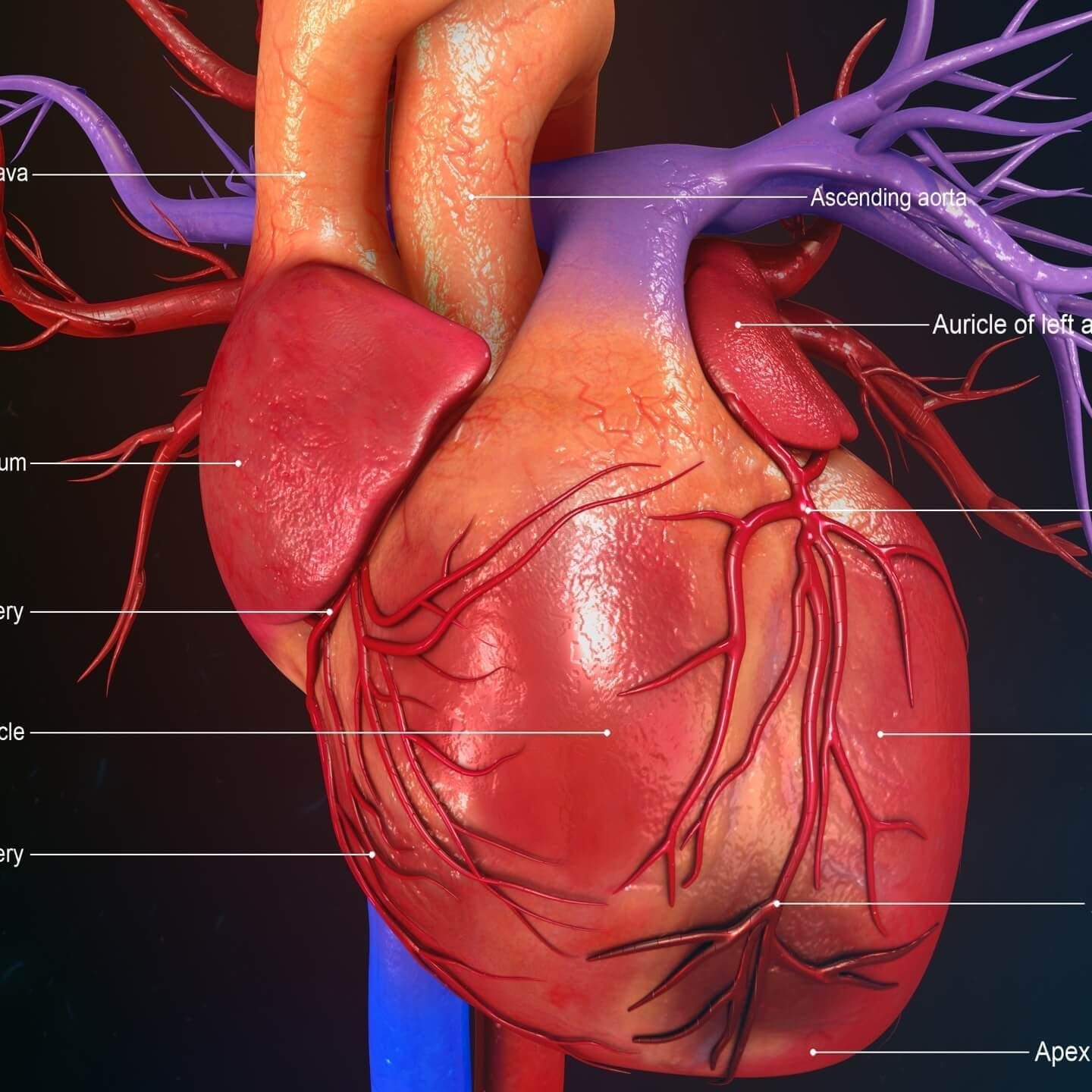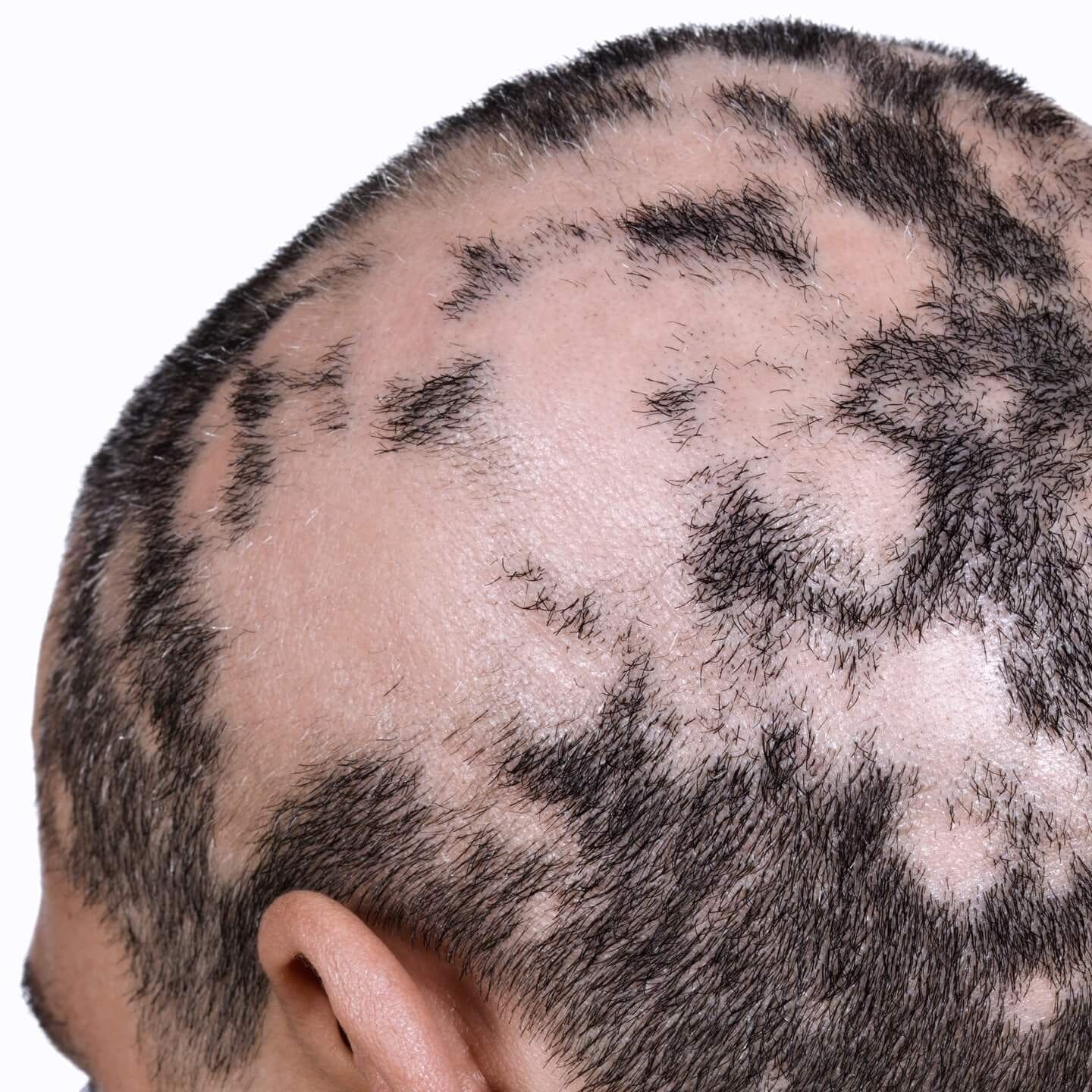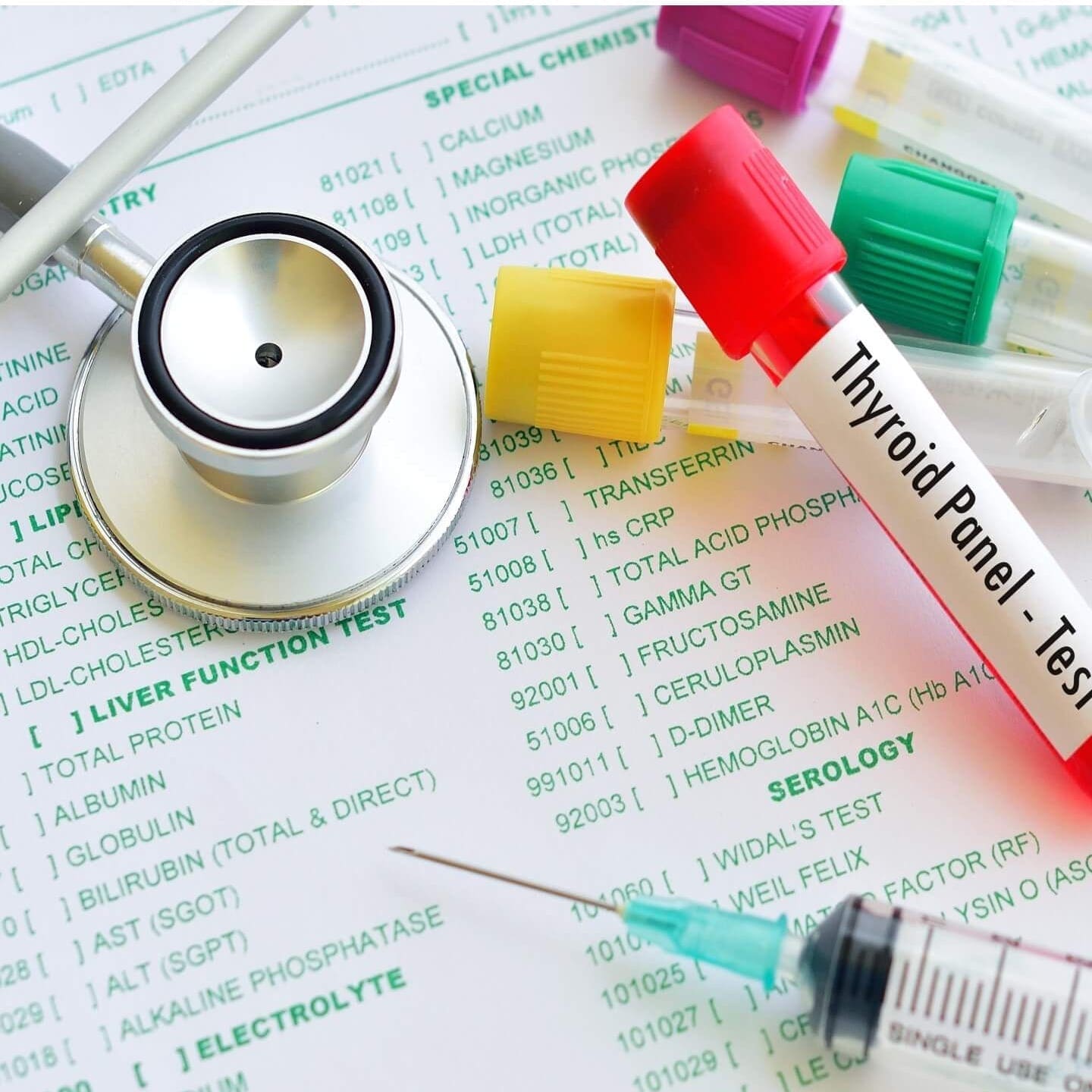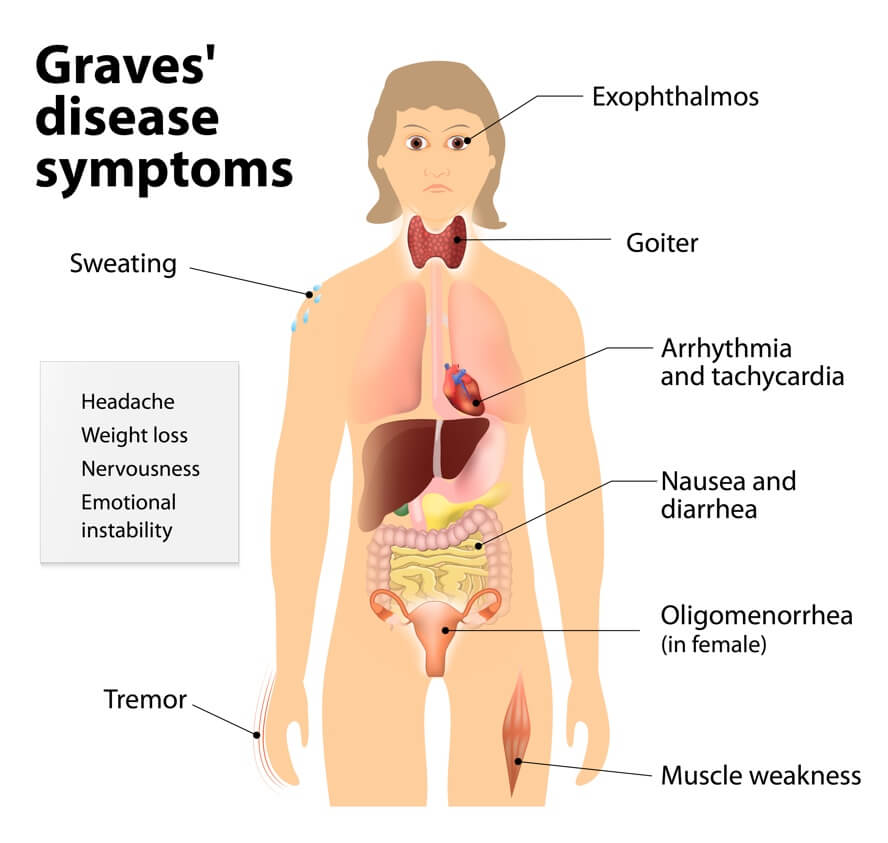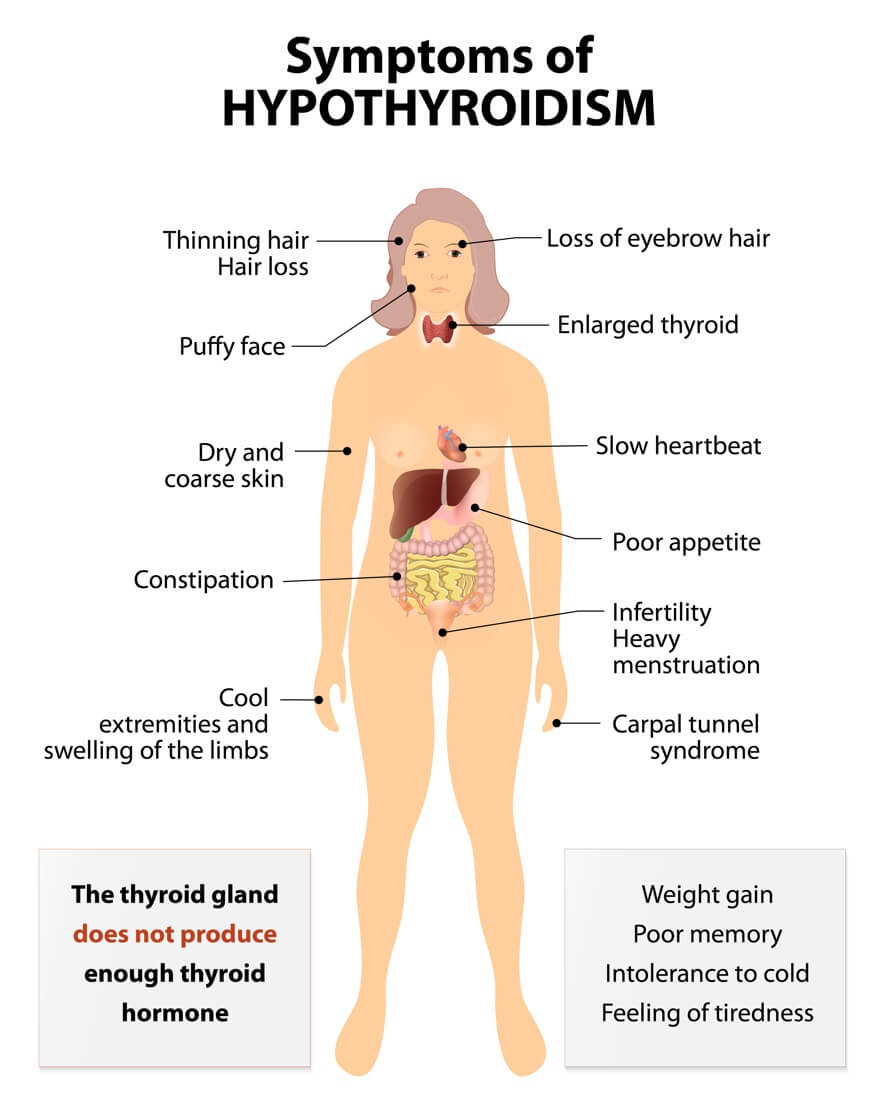Home »
Popular Posts
Thyroid Disease: The Missing Piece of a Health Puzzle
Naturopathic Nuggets about Thyroid Disease
- Over 25 million North Americans exhibit symptoms of Thyroid Disease, with almost 50% undiagnosed and many more improperly treated.
- You may be at greater risk for Thyroid Disease if you are Female, Aging, Peri or Post-Menopausal), Bipolar, Prematurely Gray, Caucasian / Asian / South Asian, Diagnosed with other Autoimmune Diseases (Alopecia, Ankylosing Spondylitis (AS), Celiac, Crohn’s or Ulcerative Colitis, Diabetes Type I, Lupus, Multiple Sclerosis (MS), Rheumatoid Arthritis (RA), Sarcoidosis, Vitiligo).
- The Autoimmune Disease, Hashimoto’s Thyroiditis is the most common cause of Hypothyroidism, affecting over 14 million in North America alone
- Thyroid Disease may be caused by Stress, Genetics, Surgery, Cancer, Pregnancy, Viral Infection, Environmental Toxins, Food Allergies, Nutritional Deficiencies, Autoimmunity (Hashimoto’s Thyroiditis or Graves’ Disease), Radioactive Iodine Treatment for Grave’s Disease (High Thyroid) often causes Low Thyroid, and Certain Medications
- The symptoms of weight gain, tiredness, hair loss, chilliness, joint & muscle aches/weakness, itchy or dry skin, depression, concentration or memory problems, constipation, heavy or irregular periods, may all be indicative of a Thyroid Disease issue.
- It is advisable to seek professional advice from a licensed Naturopathic Physician, for proper evaluation of your thyroid function.
January is Thyroid Disease Awareness Month
Thyroid disease is a global concern with over 200 million people suffering from various thyroid dysfunction. Over 25 million North Americans exhibit symptoms of poor thyroid health, with almost 50% undiagnosed and many more improperly treated. Although thyroid disease is genetic, family members may experience different types of thyroid dysfunction. Weight gain, tiredness, hair loss, chilliness, joint & muscle aches/weakness, itchy or dry skin, depression, concentration or memory problems, constipation, heavy or irregular periods, can all be indicative of a thyroid disease issue.
Thyroid Disease Affects Everything
The thyroid is a butterfly shaped gland in the neck that produces hormones that affects every part of your body. Thyroid hormones affects every system in your body by regulating metabolism, muscle building, stress mechanisms, protein, fat & carb metabolism, body temperature and heart function, heart rate & circulation.
Thyroid Disease is Like Goldilocks
When the thyroid gland produces too little or too much of its hormone, the body starts to become symptomatic either way. Normally, the thyroid hormone produced is inactive (T4), and needs to be converted to its active form (T3) in the tissues. There are so many steps for optimal thyroid health and things can go wrong at each level. Thyroid health can be compromised by affecting the body’s production, conversion or use of thyroid. Many things can cause thyroid dysfunction.
Thyroid Disease: Are You Feeling Fat & Fatigued?
The symptoms of thyroid dysfunction span many organ systems as the thyroid hormones affect every part of your body, from heart and brain to muscles and skin. Initially you may just feel tired and experience weight gain. It is more challenging to diagnose a change in thyroid health, as symptoms may be present in other conditions.
You may have Thyroid Disease if you suffer from some of the following symptoms:
Energy:
Fatigue, Low Energy
Lethargy
Body:
Weight Gain
Loss Muscle Tone
Decreased Sweating
Sleep:
Need More Sleep to Feel Rested
Waking Tired after Sleep
Hormones:
Difficulty Getting Pregnant
Increased Menstrual Periods
Change in Menstrual Pattern
Pain with Menstrual Periods
Sex:
Low Sex Drive
Difficult Erections or Orgasm
Head:
Hoarse Voice
Swelling Face
Goiter/Swelling in Throat Area
Difficulty Swallowing
Eyes:
Protruding Eyes
Swelling Around Eyes or Eyelids
Bloodshot, Tearing Eyes
Hair & Skin:
Brittle, Coarser Hair
Hair Loss, Thinning, Bald Spots (Alopecia)
Hair Loss, Outer 1/3 Eyebrows
Dry, Scaly Skin
Rough Skin or Weak Nails
Mood:
Emotionally Unstable
Nervousness
Brain:
Headaches
Difficulty Pronouncing Words
Foggy Head, Forgetful, “Brain Fog”
Difficulty Concentrating / Focusing
Sensitive to Alcohol/Anaesthetics or Sedatives
Digestion:
Indigestion
Frequent Nausea
Abdominal Bloating or Pain
Gall Bladder Issues
Constipation or Difficult Bowels
Frequent Diarrhea
Musculoskeletal:
Delayed Reflexes
Generalized Aches, Joint Pains
Heart & Circulation:
Anemia (Iron Deficiency)
Chest Pain Rapid, Irregular Heartbeat
Dizzy Spells
Numbness Hands & Feet
Chilliness or Intolerance to Cold Temperatures
What Causes Thyroid Disease?
Thyroid Disease may be caused by Stress, Genetics, Surgery, Cancer, Pregnancy, Viral Infection, Environmental Toxins, Food Allergies, Nutritional Deficiencies, Autoimmunity (Hashimoto’s Thyroiditis or Graves’ Disease), Radioactive Iodine Treatment for Grave’s Disease (High Thyroid) often causes Low Thyroid, and Certain Medications for Bipolar Disorder, Arrhythmia and Cancer, including Lithium, Amiodarone, Interferon & Interleukin-2.
Thyroid Disease: Could It Happen To Me?
You may be at greater risk for Thyroid Disease if you are Female, Aging, Peri or Post-Menopausal), Bipolar, Prematurely Gray, Caucasian / Asian / South Asian, Diagnosed with other Autoimmune Diseases (Alopecia, Ankylosing Spondylitis (AS), Celiac, Crohn’s or Ulcerative Colitis, Diabetes Type I, Lupus, Multiple Sclerosis (MS), Rheumatoid Arthritis (RA), Sarcoidosis, Vitiligo).
What Kinds of Thyroid Disease Are There?
Thyroid Disease can manifest in various ways including:
- Hypothyroidism (Low Thyroid)
- Hyperthyroidism (High Thyroid)
- Grave’s Disease (Autoimmune High Thyroid)
- Hashimoto’s Thyroiditis (Autoimmune Low Thyroid)
- Post-Partum Thyroiditis (Pregnancy induced Low Thyroid)
- Thyroid Cancer
- Thyroid Nodules
My Doctor Said My Thyroid is Fine!
Your doctor may have tested your thyroid and deemed it healthy but you’re symptomatic in so many ways, which is frustrating! This is the case with many undiagnosed patients. Conventional testing may only include TSH hormone, which is the brain (pituitary gland) telling the thyroid to work, and rarely Free T4, the inactive thyroid hormone.
The Epidemic of Undiagnosed Thyroid Disease
The reason for millions of undiagnosed patients are two-fold. Firstly, doctors are not typically testing for the actual thyroid hormones, Free T4, the inactive thyroid hormone and Free T3, the active hormone, or thyroid antibodies (TPO Ab & Tg Ab) to rule out autoimmune thyroid dysfunction. Secondly, doctors use the lab reference ranges as their guide to diagnose, and are limited to the testing of TSH and sometimes Free T4 levels.
Why is Thyroid Disease So Difficult to Diagnose?
The primary issues of thyroid diagnosis are that doctors have little time to discuss the multitude of symptoms with patients, and when evaluating hormone levels, where in the lab range makes a difference, ie low normal versus high normal, typically not recognized by conventional medicine, wherein normal is normal. Most importantly, the functional effect of thyroid is from the Free T3 (active) hormone which is conventionally not tested. The Free T3 hormone works at the cellular level, binding to the tissue receptors to regulate your metabolism, your mood & brain function, your temperature, your bowels, your hair, skin, nails and your sexual function & fertility.
Treated Thyroid Disease is Typically Poorly Monitored
Even when diagnosed, thousands of patients think their thyroid is being effectively treated, but again monitoring includes only TSH. Conventional testing fails to include Free T3 & Free T4, the actual thyroid hormone levels, which are essential to know how effective treatment is, and whether the dosage of prescribed medicine is appropriate.
Naturopathic Approaches to Thyroid Disease
A naturopathic doctor not only takes the time to review your symptoms in entirety, but will evaluate your thyroid a number of ways, including your basal body temperature (a functional test of your metabolism) and complete thyroid lab testing that has not been done by your medical doctor including:
TSH
Free T4
Free T3
Reverse T3
Thyroid Peroxidase Antibodies (TPOAb) if Autoimmunity is suspected
Thyroglobulin Antibodies (TgAb) if Autoimmunity is suspected
Autoimmune Thyroid Disease
An autoimmune disease is an abnormal response to normal immune function. A healthy immune system innately knows not to attack the body’s own tissues. In autoimmune diseases, the immune system confuses the tissues of the body as foreign, and attacks them. The thyroid gland is the most common organ affected by autoimmunity (McLeod & Cooper 2012).
Autoimmune Low Thyroid
Autoimmunity can lead to chronic inflammation from antibodies against the thyroid, which can either cause low thyroid function Hypothyroidism, known as Hashimoto’s Thyroiditis or high thyroid function Hyperthyroidism, known as Graves’ Disease. Hashimoto’s Thyroiditis is the most common cause of Hypothyroidism, affecting over 14 million in North America alone.
Thyroid Disease: Why Is My Body Attacking Me?
I believe that autoimmune diseases mean that the body has been stressed enough to trigger the negative expression of one’s genetics. These stressors may come in the form of mental, emotional and physical forms. Physical stressors may include food allergies, toxins, drugs, bacteria or viruses.
My Autoimmune Health Story…
Thyroid Symptom List
If you experience some of the following symptoms, please see a Naturopathic Physician to evaluate your Thyroid Health. These symptoms include:
- Hoarseness of Voice that has not always been present
- Swelling in the Face
- Goitre or Swelling in Lower Front of Neck
- Sensitive to Alcoholic Beverages/Anesthetics or Sedative Drugs
- Dry, Scaly Skin
- Pallor or Unusual Whiteness of Skin
- Yellow Colour of Skin
- Decreased Sweating
- Drier & Coarser Hair
- Decrease in Scalp Hair
- Decrease in Outer 1/3rd of Eyebrows
- ‘Dirty’ or Thickened Skin Appearance of Elbows & Knees
- Delayed Reflexes
- Persistent Numbness & Tingling in Any Part of Body & Extremities
- Tired out More Easily
- Protruding Eyes
- Swelling Around the Eyes or Eyelids
- Blood-Shot Eyes
- Excessive Tearing of Eyes
- Enlarged Heart
- Swollen Ankles or Body Fluid Retention
- Abnormal Electrocardiogram ECG
- Less than Normal Energy
- Any Blood Relatives with Thyroid Gland Problems or Disease
- Headaches
- Sensitive to Cold Temperatures or Prefer Warmer Rooms than others or Prefer More Bedclothes than others
- Difficulty in Pronouncing Words or Articulating Thoughts
- Pain in the Lower Front Part of Neck
- Unexplained Increase in Weight
- Unexplained Decrease in Weight
- Rough Skin or Weakened Nails
- Difficulty Concentrating
- Unusually Forgetful
- Emotionally Unstable in Recent Weeks or Months
- Tired after a Usual Night of Sleep or Increased Sleep or Rest Requirements
- Blurred vision
- Ringing of the Ears
- Dizzy spells
- Decrease in Hearing
- Inclined to be More Nervous than usual
- Difficulty Breathing
- Angina Pain from the Heart and Down Left Arm
- Attack of Rapid or Irregular Heart Beat
- Dyspepsia or Indigestion
- Excess Saliva
- Frequently feel Nauseated
- Abdominal Swelling or Bloating
- Abdominal Pain
- Gall Bladder Trouble
- Constipation, Delayed or Difficult Bowel Function
- Frequent Diarrhea
- Problem with Sex Drive
- Problem with Sexual Capacity
- Problem concerning Fertility and Having Children, Conception, Miscarriages
- Increased Menstrual Periods
- Change to Menstrual Pattern
- Menstrual Pain
- Generalized Aches
- Joint Pains
- Difficulty Swallowing
Related Autoimmune Disease: Signs & Symptoms Your Body Is Attacking Itself + Treatments
Related Thyroid Testing Issues: Why You’re Undiagnosed or Ineffectively Treated for Hypothyroidism
This information is for educational purposes only and does not advocate self-diagnosis. Due to individual variability, consultation with a licensed health professional, such as a licensed naturopathic physician is highly recommended, prior to starting a natural treatment plan. For further information, see Terms of our Website.
Follow Dr. Jiwani
Popular Posts





